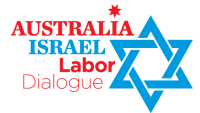A controversial University of Sydney lecturer who was sacked after superimposing a swastika on an Israeli flag has won a key victory in his battle to be reinstated, with the federal court declaring academics at the institution are entitled to convey even offensive views in their area of expertise.
The decision reverses a previous court ruling that had suggested academic freedom was merely an aspirational goal with no legal force and bolsters academics’ free speech rights nationally amid a focus on censorship on campuses.
But it does not mean the lecturer, Tim Anderson, will ultimately win his legal campaign to get his job back because another judge now has to examine whether his conduct was within the bounds of academic freedom or went too far.
Dr Anderson, who came to national prominence when he was acquitted of planning the 1978 Hilton Hotel bombing in Sydney, taught political economy from an “anti-imperialist” perspective at the university from 1998 until 2019, when he was fired after a string of online incidents from 2017.
They included calling Republican Senator John McCain an “al Qaeda supporter”, suggested a News Corp journalist was a “traitor” to his ethnicity and posting a photo of friends at lunch, one of whom was wearing a patch in Arabic that read in part “curse the Jews”.
After several warnings, Dr Anderson published slides including an infographic, which two of the appeal judges said was “an expression of a legitimate view, open to debate, about the relative morality of the actions of Israel and Palestinian people”. The infographic argued Israel’s conduct was much worse but also included an Israeli flag with a Swastika in the middle. By January 2019 he was fired.
Initially, a federal court judge found Dr Anderson was not protected by the academic freedom clause the university had negotiated because it “does not create any enforceable obligation”. Three judges of the federal court, including chief justice James Allsop, overturned that.
“No matter what view is taken of Dr Anderson’s conduct, this case concerns his livelihood and profession,” two said. “He is no more and no less entitled than anyone else to a fair determination of his application in accordance with law.”
All three ruled that a right to academic freedom bound the University of Sydney, so long as academics conducted themselves in accordance with high ethical, professional and legal standards and did not harass, vilify or intimidate anyone.
“The right would be meaningless if it is subject to qualifications such as not involving offence to others, not being discourteous to others, or not involving insensitivity to others,” Justices Jayne Jagot and Darryl Rangiah held.
A university spokeswoman said the institution was disappointed by the decision, which it would review before deciding what to do.
Dr Anderson said in a post on his website that the court had recognised his infographic was tied to a discussion about morality in the Israel-Palestine conflict, in contrast to how it was “falsely depicted” by the university and media “simply as a ‘Swastika Image’, offensive to Jewish people”.
However, Justices Jagot and Rangiah said the swastika flag image was “deeply offensive and insensitive to Jewish people” and could suggest a “false moral equivalence comparing Israel to Nazi Germany”.
The libertarian Institute of Public Affairs’ police director Gideon Rozner said while Dr Anderson’s views were misguided, mean-spirited and borderline delusional, he should not have been censored.
“In a liberal democracy, the price of free speech is that the worst of human thought has as much a chance of being expressed as the best,” Mr Rozner said. “We cannot make intellectual freedom contingent on whether we like the speech being aired.”
Matthew McGowan, the national secretary of the National Tertiary Education Union, said it had brought the case alongside Dr Anderson not because it defended his comments but because it believed in academic freedom.
“Universities should embrace this decision and work with the union to ensure we have legally enforceable protections for academic freedom, which is fundamental to the sector and the work that we do,” he said.
Enterprise agreements, which at the University of Sydney contained the academic freedom clauses Dr Anderson relied on in this case, vary from campus to campus and Mr McGowan said the union would push to strengthen them.








